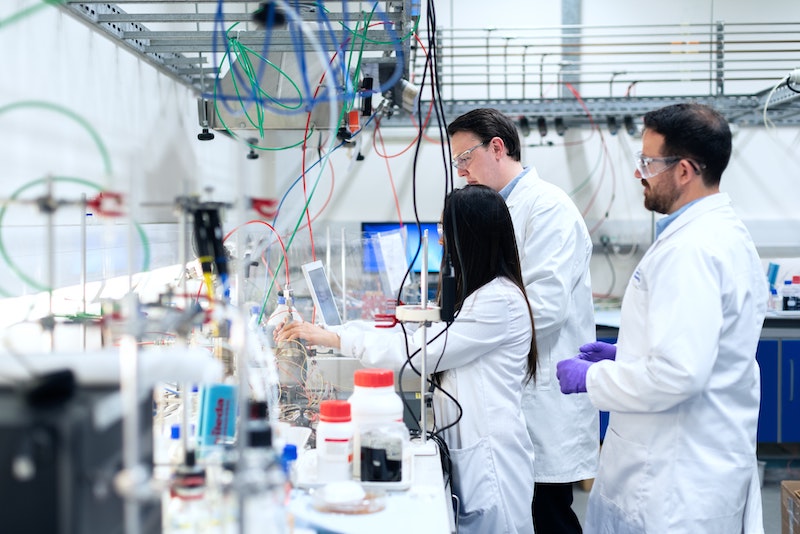Chemical engineers are responsible for the chemical, biochemical and physical processes and machinery used to transform raw materials into valuable products.
Graduates will need a degree in a relevant subject such as chemical engineering, biochemical engineering or mechanical engineering.
What does a chemical engineer do?
Chemical engineers (or process engineers) are responsible for developing new industrial processes and designing new process plants and equipment or modifying existing ones. The processes that they come up with are used to create products ranging from oil and gas to food and drink. The role can include:
- testing new processes
- collecting data required to make improvements and modifications
- overseeing the construction of new plants
- using and developing process simulation software to work out the best production methods
- purchasing and installing equipment
- using scientific principles related to magnitude, momentum, heat transfer etc
- supervising plant operations
- investigating and troubleshooting plant/process problems
- scheduling and coordinating work to tight deadlines and within financial budgets
- ensuring that equipment works to its specification and to appropriate capacities
- assessing safety and environmental issues
- liaising with installation/project engineers and specialists
- ensuring safe working conditions and compliance with health and safety legislation.
Typical employers of chemical engineers
- Chemical production and process companies (for example, pharmaceutical, consumer goods, synthetics, plastics, paints and polymer manufacturers)
- The water treatment industry
- Food manufacturers
- Oil refining/petrochemical companies and associated service and contractor companies
Qualifications and training required
There are routes into this career for both graduates and school leavers. Graduates will need a degree in a relevant subject such as chemical engineering, biochemical engineering or mechanical engineering.
Key skills for chemical engineers
- An aptitude for and interest in chemistry
- IT and numeracy skills
- Analytical skills
- Commercial awareness
- The ability to work well under pressure
- Communication and teamworking skills
- Problem-solving skills
Recommended IBDP subjects needed to apply to university to study chemical engineering:
IB Chemistry HL and some unis will want Math HL

